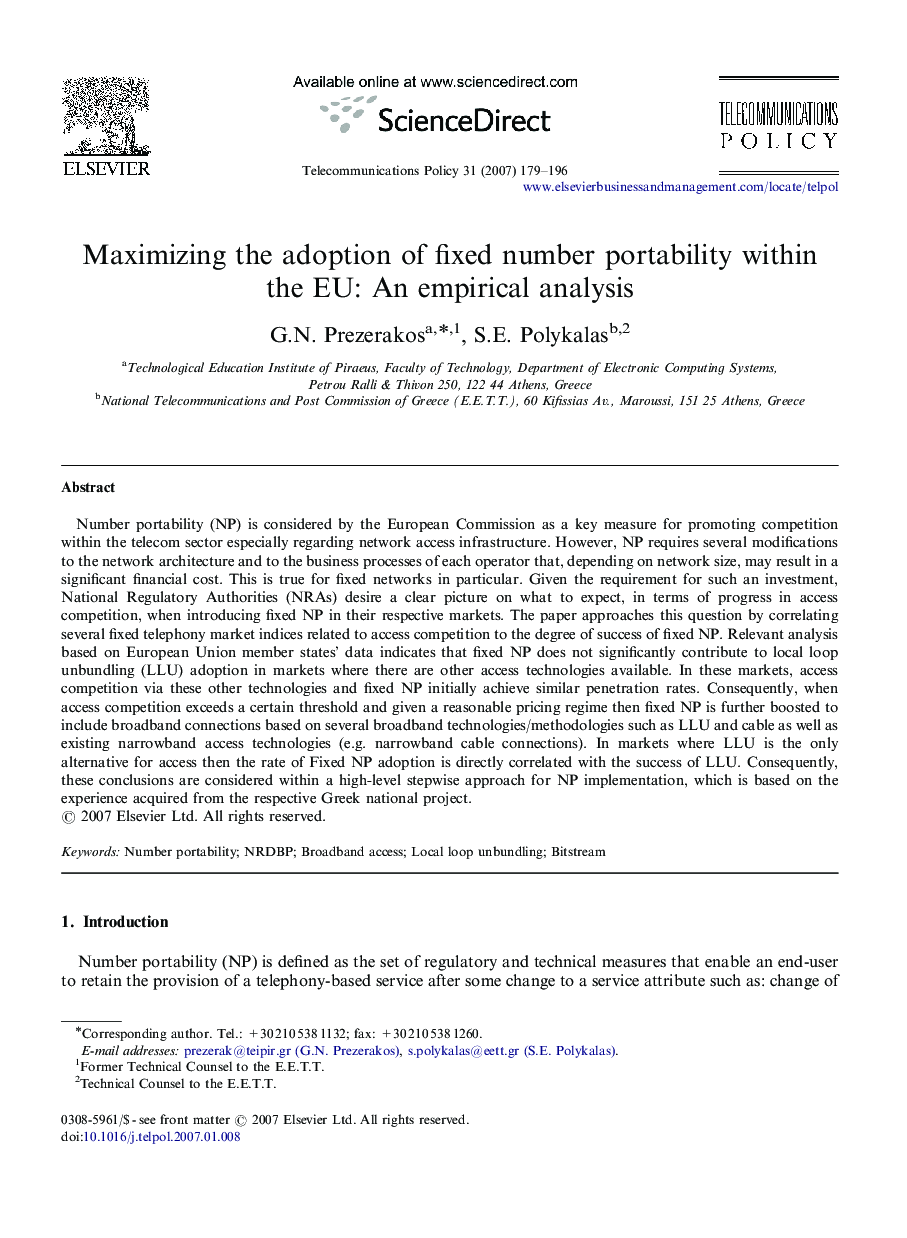| Article ID | Journal | Published Year | Pages | File Type |
|---|---|---|---|---|
| 557508 | Telecommunications Policy | 2007 | 18 Pages |
Number portability (NP) is considered by the European Commission as a key measure for promoting competition within the telecom sector especially regarding network access infrastructure. However, NP requires several modifications to the network architecture and to the business processes of each operator that, depending on network size, may result in a significant financial cost. This is true for fixed networks in particular. Given the requirement for such an investment, National Regulatory Authorities (NRAs) desire a clear picture on what to expect, in terms of progress in access competition, when introducing fixed NP in their respective markets. The paper approaches this question by correlating several fixed telephony market indices related to access competition to the degree of success of fixed NP. Relevant analysis based on European Union member states’ data indicates that fixed NP does not significantly contribute to local loop unbundling (LLU) adoption in markets where there are other access technologies available. In these markets, access competition via these other technologies and fixed NP initially achieve similar penetration rates. Consequently, when access competition exceeds a certain threshold and given a reasonable pricing regime then fixed NP is further boosted to include broadband connections based on several broadband technologies/methodologies such as LLU and cable as well as existing narrowband access technologies (e.g. narrowband cable connections). In markets where LLU is the only alternative for access then the rate of Fixed NP adoption is directly correlated with the success of LLU. Consequently, these conclusions are considered within a high-level stepwise approach for NP implementation, which is based on the experience acquired from the respective Greek national project.
